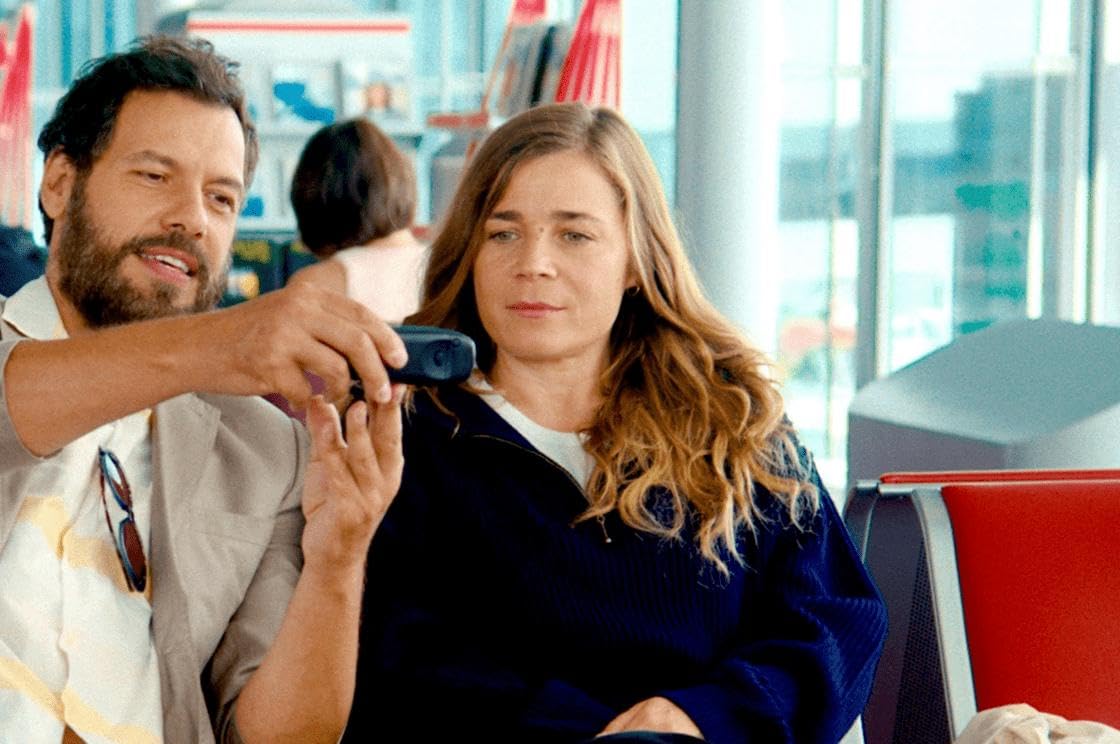Everybody Loves Jeanne
Well, that is, except Jeanne

As is so often the case, I have no idea how this movie came across my radar. Seems it premiered at Cannes over a year ago, so maybe it was on some wrap-up? This is one of the interesting things about having a watchlist around 350 movies long: I lose track of how things get on there. What’s definitely true is that I watched the trailer and something about it grabbed me. And not just a little: in that case, it would have gone to one of my other, lower priority movie lists (I really like lists, okay?). I do recall determining the quirky little animations speaking to her were worthy of my attention, so onto the watchlist it went!
Thus, when I was looking for stuff only available on Mubi, it popped up. I hadn’t even realized it was a new release in the US until just before I threw it on. This is the odd thing about the streaming era: release dates are muddier than ever before, especially when it comes to foreign films.
Jeanne (Blanche Gardin) is deep in debt. She’s the leader of a sustainability research project which just sank to the bottom of the ocean very publicly, and naively made herself sole guarantor of the project’s loans. So her and her brother Simon (Maxence Tual) decide she should go to Lisbon to clean out and sell their deceased mother’s apartment. Upon arriving, she finds herself overwhelmed by the memories of growing up there, and haunted by the specter of her mother. Luckily, while traveling she meets Jean (Laurent Lafitte), a cheery and debonair goofball who’s clearly quite taken with her, and whom she periodically calls up to distract herself. There’s also the possibility of reconnecting with her ex Vitor (Nuno Lopes), although that relationship is littered with minefields (and a wife and newborn).
All the while, her internal monologue is firing on all cylinders, represented by an animated, Captain Caveman looking figure, all hair and eyes with limbs occasionally poking through (voiced by Céline Devaux). It constantly points out her flaws, gives voice to her anxiety, and chides her when she flagrantly ignores its advice. It gives this otherwise slight (albeit charming) romcom a splash of flavor and color, both literal and figurative.
Which is a pretty apt microcosm of the film. Sure, at its core, it’s relatively simple and standard. Aimless woman who think she’s too old for love finds herself in the sights of two men, one from her past and one more well suited to her. But that ignores most of what sets it apart. For long stretches, that voice in her head is used for small comedy bits or trite comments or whatnot, not really interacting with her in any meaningful way, as if it was an afterthought. But then, it will appear to pointedly highlight her state of mind. It’s what alerts us early on to just how deep her self-loathing runs. And its disappearance for a chunk of time late in the film seems to indicate settling into a comfortable state, before she jolts herself out of it again.
Similarly, one of the central themes is malaise and depression and despondency. Jeanne feels like a failure with the catastrophe of her project launch, and thinks getting out of France for a bit will help, but it just causes her to cling harder to the past. It’s not until she finally dives hard into her old life that she comes up for air, gasping to get out of there, spurred to finally do something about it. And the arrival of some help gives physical realization to that feeling.
It’s biggest flaw is not hitting any of those themes hard enough, trying to stay light. This despite having a built-in mechanism to explore how she’s processing her depression, as they really want to lean on her inner monologue almost exclusively for various forms of comedy. Additionally, while the inner voice makes Jeanne feel more fleshed out, Gardin is unfortunately not doing much to make that happen. Without us seeing the literalization of her thoughts, her emotions would be incredibly hard to read. She’s not doing much to augment what the voice is saying. In fact, it often seems like she, the actress, is disregarding it. All of which really lends to the feeling that the animation was added after the fact, either to pad out the movie or to accommodate a weak performance. While that’s almost certainly not the case (it’s hard to play as blank as Gardin sometimes does unless you’re trying), that it comes across as such leads to a disjointed experience.
Still, it’s amusing, and it does have its charms. It’s a cute tale, with lots of lovely little bits that will have you smiling from ear to ear. Yes, as mentioned, it deals with depression and emptiness a bit, so it’s not wall-to-wall laughter. But you’e be hard-pressed to come away feeling like you wasted your time, or that you truly got nothing out of it. It’s a lovely little film, and sometimes, that’s all you need.